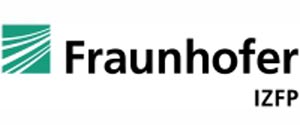Fraunhofer scientists develop universally applicable broadband eddy current electronics

Due to the high degree of automation of the technology as well as the comprehensive range of potential applications nondestructive material and defect inspection using eddy current methods has become indispensable for nondestructive inspection applications.
With the inspECT-PRO eddy current electronics, our engineers and scientists are demonstrating an innovative inspection electronics concept at this year's Control: A module of the new electronics series that operates currently necessary interfaces such as the OPC-UA specification, thus, providing easy integration into production processes.
“Our goal was to develop a broadband eddy current inspection electronics that can be used flexibly and adapted to customer requirements in a wide variety of applications,“ explains Dirk Koster, group leader and scientist at Fraunhofer IZFP.
Engineering features of the novel broadband eddy current platform
“Real-time“ inputs and outputs can be used for process control. For easy integration into the data system of a production plant, the OPC-UA specification sends component-specific data such as evaluation results, batch number, date or other metadata to any information unit.
This implies the comprehensive documentation of each component inspection for incorporation into the company's digitization strategy. The module, which is equipped with two independent hardware channels, can be used in single-frequency or multi-frequency operation with up to 32 test frequencies per channel.
Coordinate signals are directly connected to the eddy current signals via a 3-axis interface. The module can be supplied as an OEM kit for integration into customer systems. Alternatively, a slide-in, top hat rail mounting, laboratory or mobile laptop system can be flexibly adapted.
Operating the electronics platform to inspect lightweight construction structures
Today, eddy current technology is used not only for standard applications in material inspection such as inspection of steel, aluminum or copper. With the increased demands on lightweight construction, the requirements placed on materials (e.g. CFRP) are also growing steadily. In order to test such weakly electrically conductive materials, however, a high test frequency is required.
A broadband approach with test frequencies from 10 Hz to 112.5 MHz has been implemented so that both standard and new materials can be tested successfully. With high sample rates of up to 125 ksamples/s in single-frequency mode, even very fast test situations can be mapped. Due to the use of powerful FPGA and DSP components, the board is well suited for fast signal processing and evaluation.
Cognitive sensor systems – efficient processes
The scientists of the institute develop cognitive sensor systems for monitoring, controlling and optimization of individual processes or entire value chains. The focus here is not only on production processes, but also on processes in the fields of material and product development, upkeep, maintenance and recycling of materials. For this purpose, the institute uses the entire range of available physical measuring principles.
Dirk Koster, M.Sc. | Fraunhofer Institute for Nondestructive Testing IZFP | Phone +49 681 9302-3894 | Campus E3 1 | 66123 Saarbrücken, Germany | www.izfp.fraunhofer.de | dirk.koster@izfp.fraunhofer.de
https://www.izfp.fraunhofer.de/en/Presse/Pressemitteilungen/inspECT-PRO.html
Media Contact
All latest news from the category: Machine Engineering
Machine engineering is one of Germany’s key industries. The importance of this segment has led to the creation of new university degree programs in fields such as production and logistics, process engineering, vehicle/automotive engineering, production engineering and aerospace engineering among others.
innovations-report offers informative reports and articles covering technologies such as automation, motion, power train, energy, conveyor, plastics, lightweight construction, logistics/warehousing, measurement systems, machine tools and control engineering.
Newest articles

Machine learning algorithm reveals long-theorized glass phase in crystal
Scientists have found evidence of an elusive, glassy phase of matter that emerges when a crystal’s perfect internal pattern is disrupted. X-ray technology and machine learning converge to shed light…

Mapping plant functional diversity from space
HKU ecologists revolutionize ecosystem monitoring with novel field-satellite integration. An international team of researchers, led by Professor Jin WU from the School of Biological Sciences at The University of Hong…

Inverters with constant full load capability
…enable an increase in the performance of electric drives. Overheating components significantly limit the performance of drivetrains in electric vehicles. Inverters in particular are subject to a high thermal load,…





















